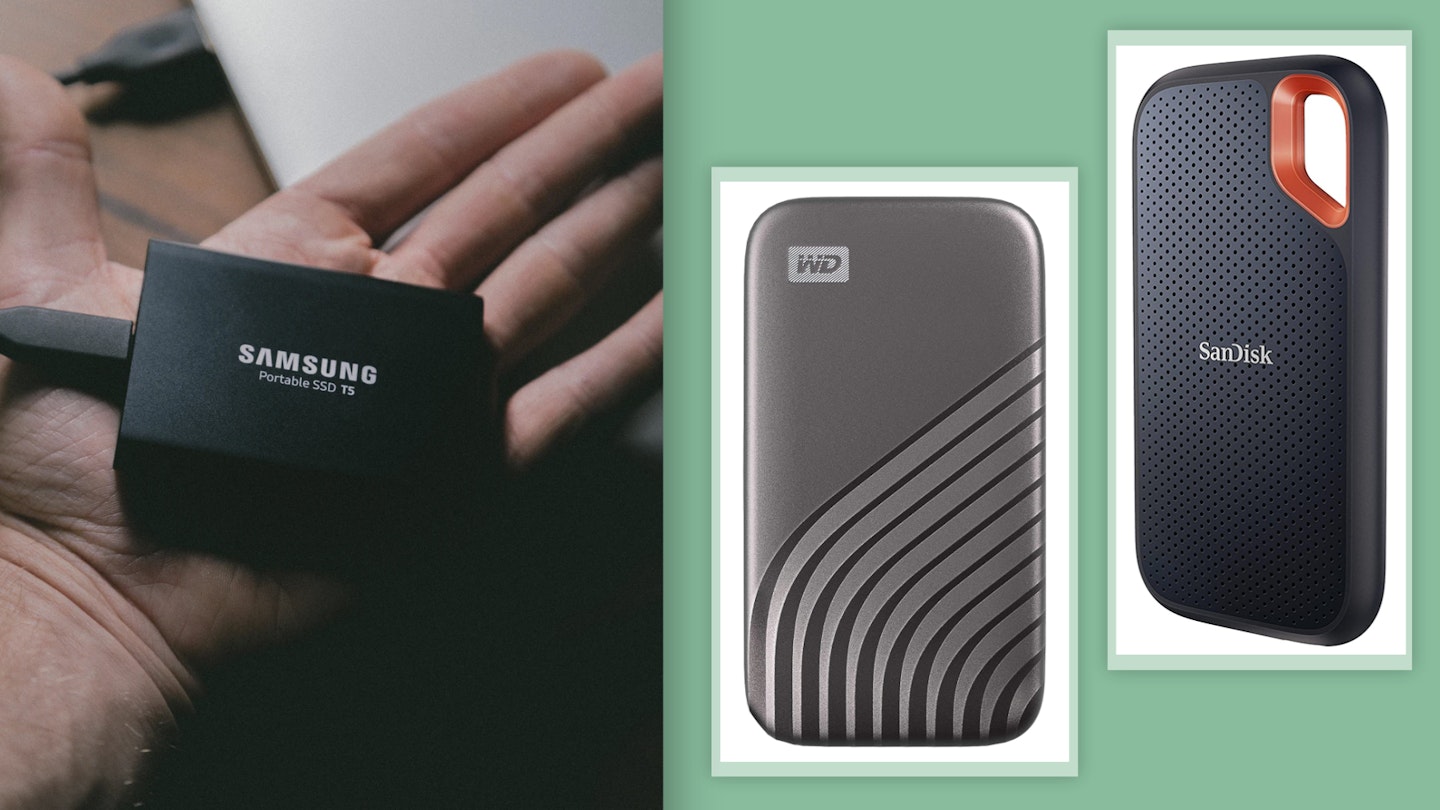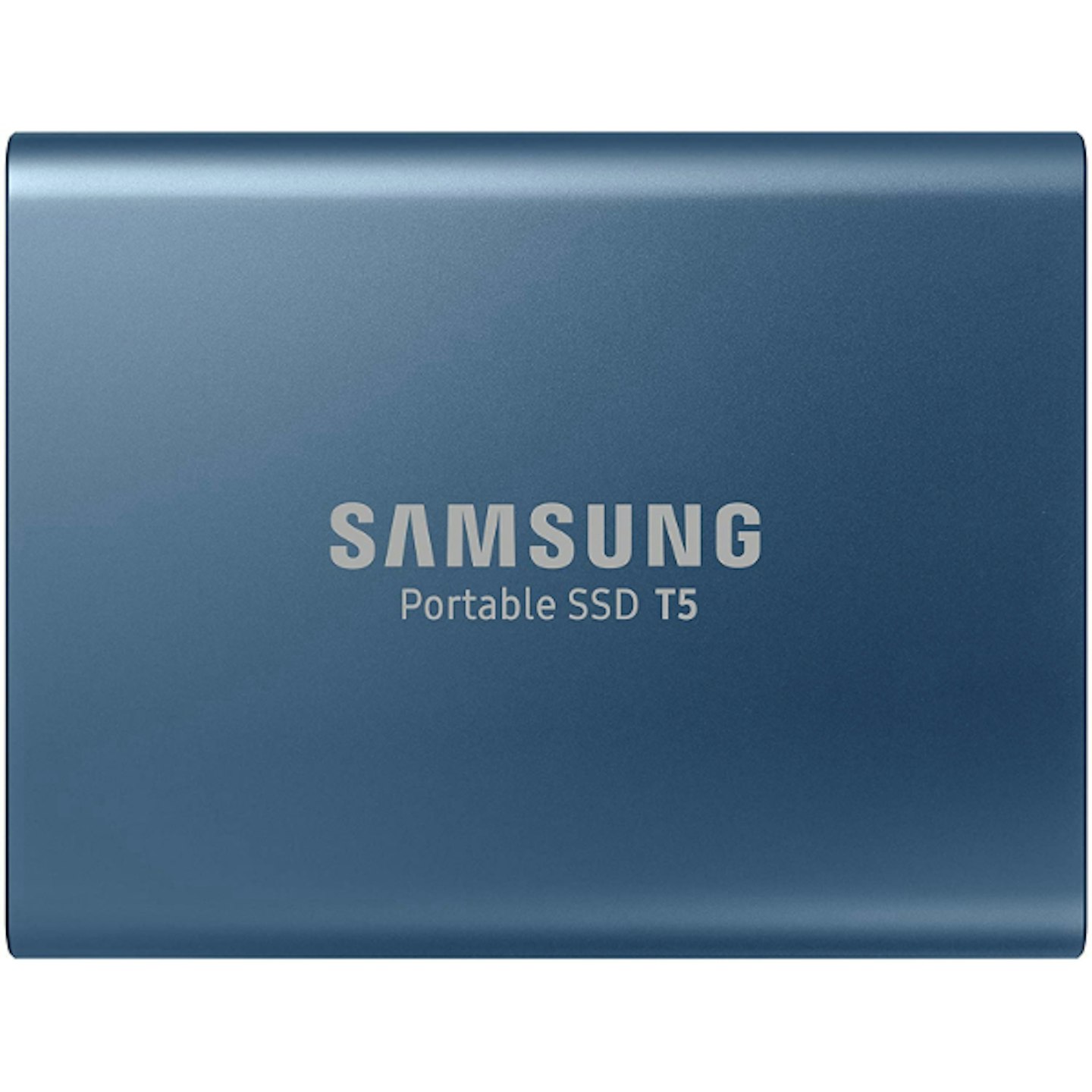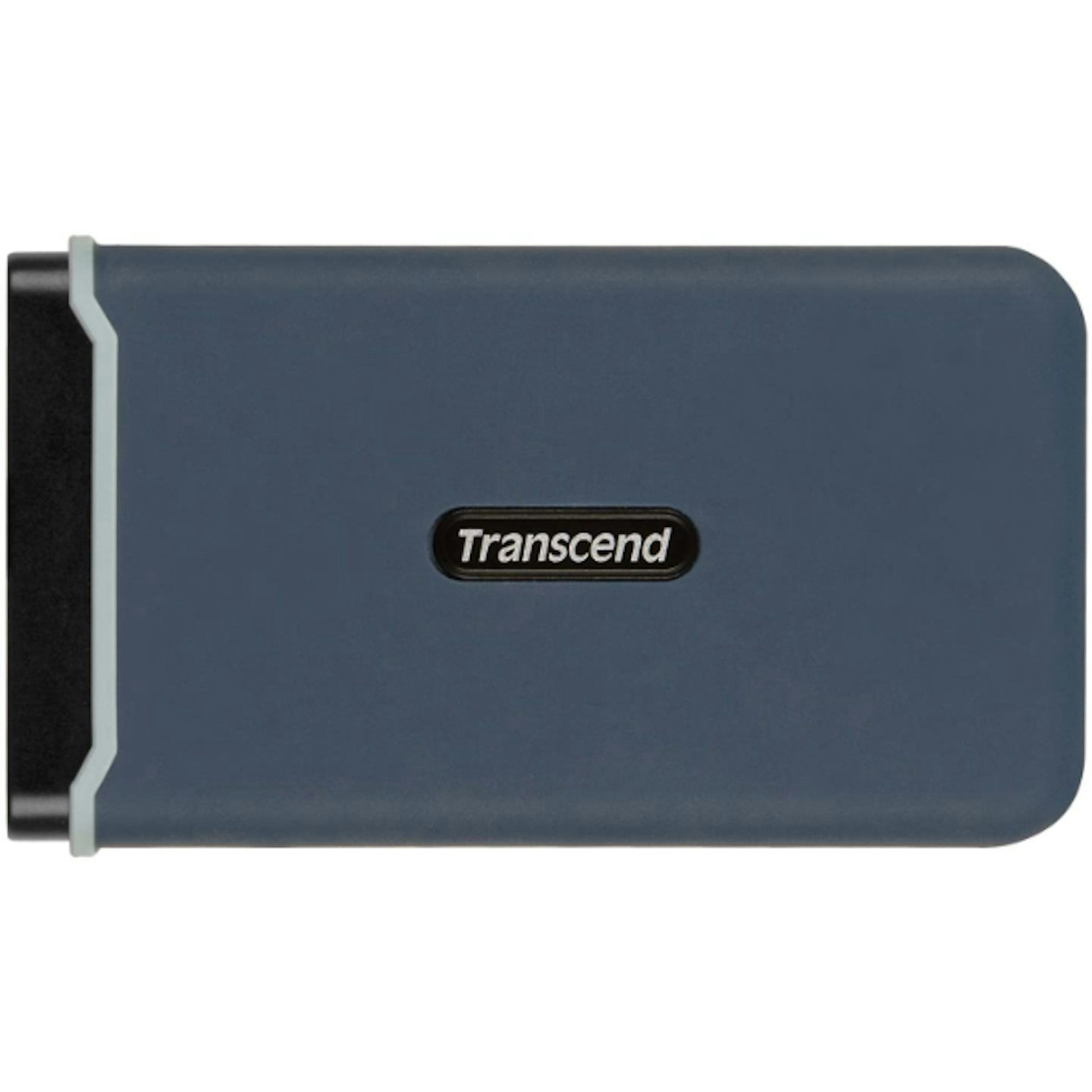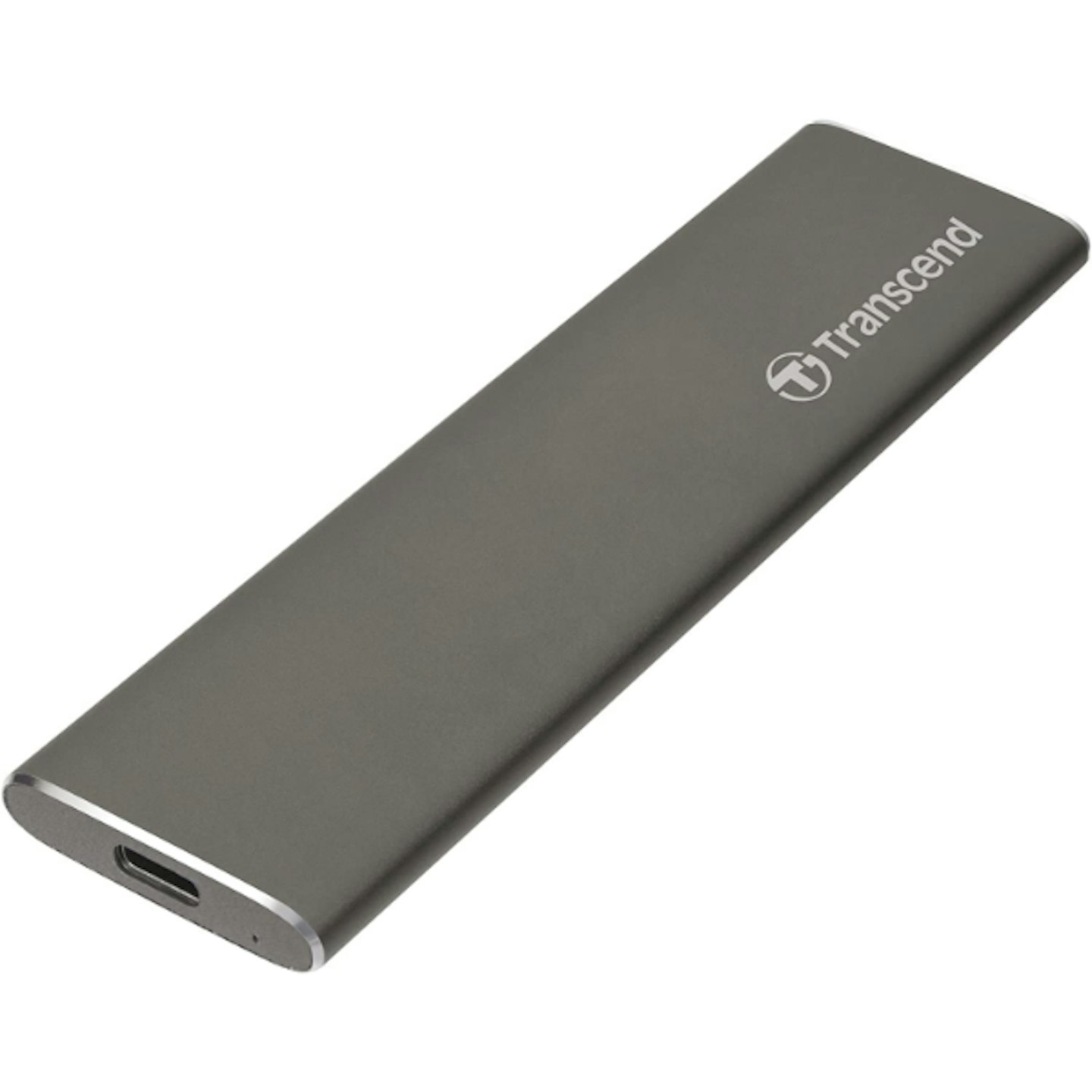Portable hard drives are hugely valuable bits of storage kit. The ability to carry a huge quantity of files appeals to a broad spectrum of tech users. They are great for photographers and videographers regularly working away from their office or anyone carrying essential encrypted files on a commute. They make sharing large documents between friends and devices are far easier and quicker process, and they can help back up valuable files without taking up a lot of home office desk space.
As we’ve previously rounded up the best eternal hard drives and the best SSDs, as well as the best USBs, we thought it was about time we gave the pocket-sized powerhouses a chance to show you what they can do. So, below, you’ll find a roundup and breakdown of the very best portable hard drives.
The best portable hard drives shortlist:
Related: The best USB sticks for smart TVs | The best console hard drives
The lexicon around the best portable storage drives is a little muddled. Technically, the term 'hard drive' refers to the HDD technology used for PC storage up until recent years. Generally speaking, 'hard drive' has been adopted as a catch-all phrase referring to any mass storage device, be it SSD or HDD. That’s why our list is a mix of the two.
If you’d like to know more about the difference between HDD and SSD, be sure to check out our guide. Alternatively, you can head to the bottom of this page for a quick briefing, and advice on 256-bit encryption, USB 3.1 and USB-C.
The best portable hard drives:
The Samsung T5 is our favourite portable storage option. Not only is it affordable, but its use of SSD and USB-C means that it provides impressive speeds of up to 540MB/s. It's lightweight, robust and easy to use, and the AES 256-bit hardware encryption provides welcome peace of mind. Available in 500GB, 1TB and 2TB.
| Pros | Cons |
|---|---|
| • Affordable | • High capacities get expensive |
| • Reliable | |
| • Great speeds |
| Specifications | |
|---|---|
| Connection: | USB-C |
| Works with: | Windows and macOS |
| Read speed: | 540 MB/s |
| Size: | 74 x 57.3 x 10.5 mm, 51g |
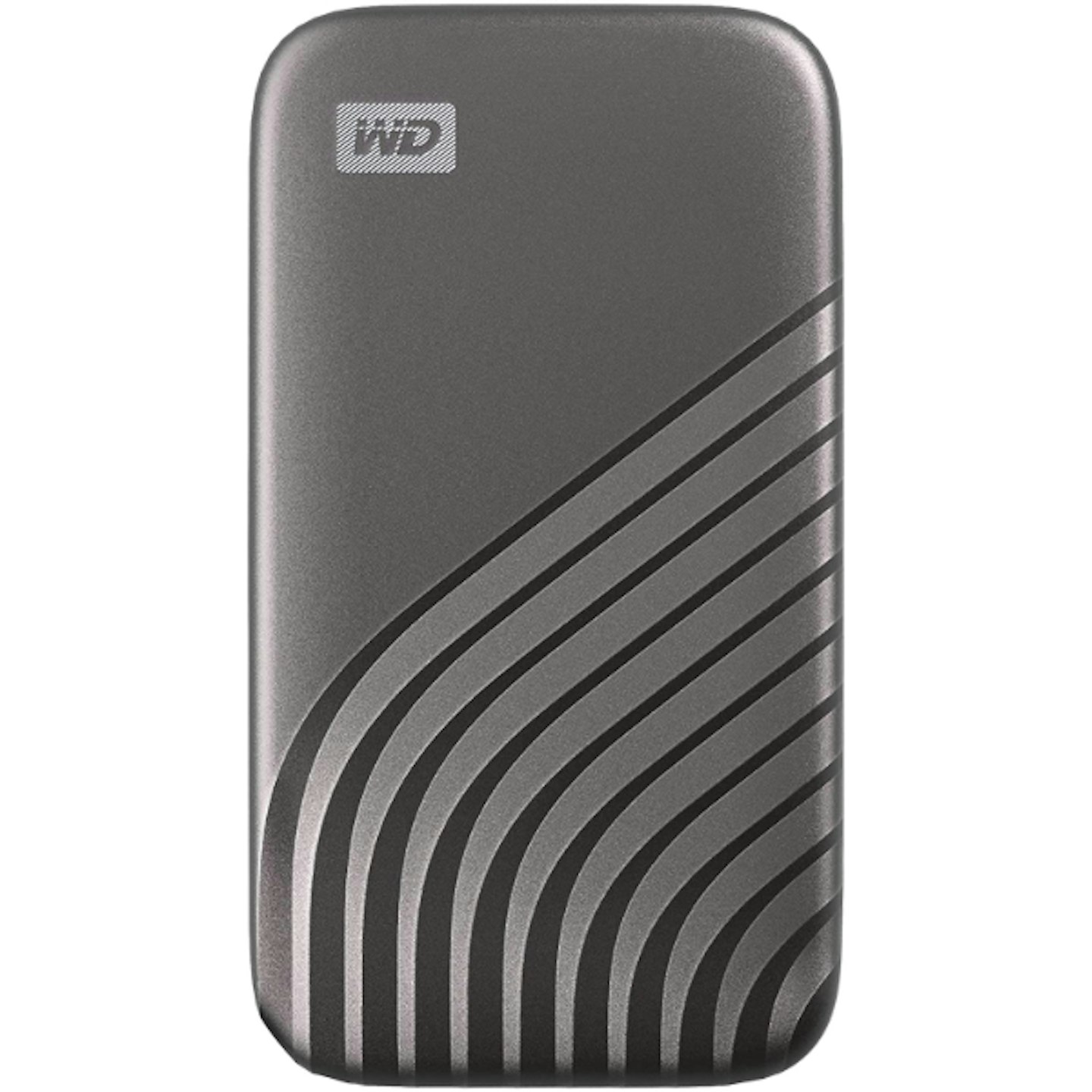
Though it costs a little more than some of its competition, this offering from Western Digital has speed on its side. To call the NVMe technology concealed in the driveu2019s diminutive body u201cnippyu201d is an understatement - it has a read/write speed of up to 1,000/1,050 MB/s, which is roughly double some of the other options here listed. (You can read more about NVMe here). On top of its speed, this portable drive is resistant to shocks, vibrations and drops, so you shouldnu2019t worry about keeping it in your backpack on the train or plane. 256-bit AES encryption is available. Available in 500GB, 1TB, 2TB and 4TB.
| Pros | Cons |
|---|---|
| • Lightning-quick | • Cost for capacity is more than others |
| • Robust build | |
| • Encryption available |
| Specifications | |
|---|---|
| Connection: | USB-C |
| Works with: | Windows and macOS |
| Read speed: | 1,050 MB/s |
| Size: | 100 x 55 x 8.9mm, 41g |
If youu2019re on a budget and value speed over capacity, then consider the Transcend ESD350C portable SSD. Its 1,050 MB/s read speed keeps up with the NVMe option from Western Digital but is available in capacities as small as 240GB. Itu2019s not the most wee-rounded pick on the list, but its standout stats are sure to please those who need quick storage around the home office. Available in 240GB, 480GB and 960GB.
| Pros | Cons |
|---|---|
| • Fast read/write | • 960GB capacity is expensive |
| • Nice design |
| Specifications | |
|---|---|
| Connection: | USB C and USB 3.1 |
| Works with: | Windows and macOS |
| Read speed: | 1,050 MB/s |
| Size: | 96.5 x 53.6 x 12.5 mm, 87g |
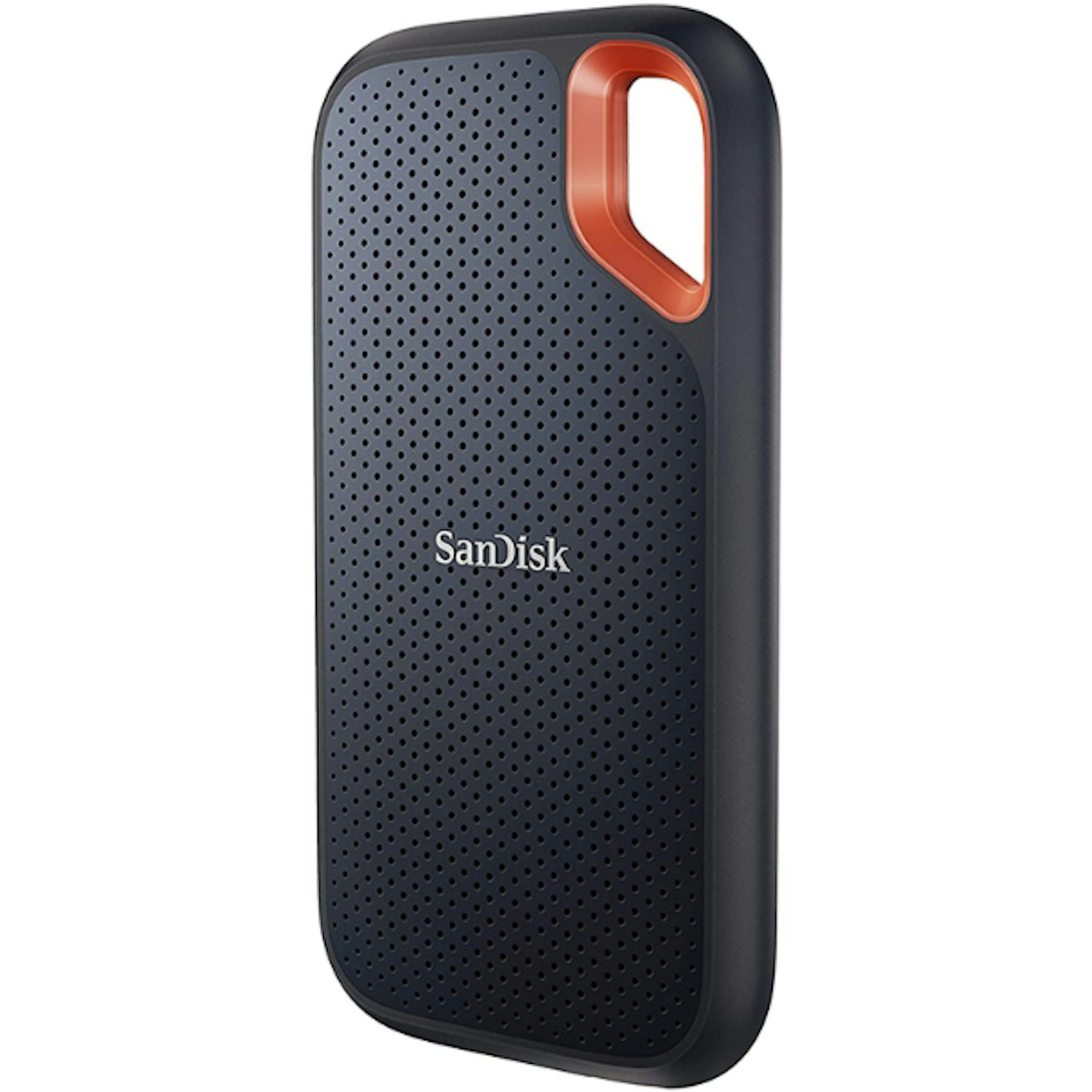
Portable memory expert SanDisk hit a home run with the Extreme range of NVMe SSDs. Designed for those who are always on the go, the Extreme Portable SSD holds its lightning-quick memory within a shock-resistant, rugged, and water and dust-resistant case with an IP-55 rating. The size of the device is also impressive, measuring in smaller than a smartphone - itu2019s easy to tuck into a jacket or backpack pocket. Connection to a computer, either Mac or PC, can be made via a USB-C or USB 3.1 port. Available in 500GB, 1TB, 2TB and 4TB.
| Pros | Cons |
|---|---|
| • Waterproof and robust | • High capacities are very expensive |
| • Fast speeds | |
| • Highly portable |
| Specifications | |
|---|---|
| Connection: | USB C and USB 3.1 |
| Works with: | Windows and macOS |
| Read speed: | 1,050 MB/s |
| Size: | 8.95 x 52.42 x 100.54 mm, 50g |
While none of our picks are going to weigh you down, the Transcend ESD250C is by far the most portable SSD here listed - itu2019ll slide into even the most low-profile laptop sleeve pockets. Thanks to its aluminium construction and use of 3D NAND flash, it weighs 47g and less than 8mm deep - though itu2019s pretty long at 120mm. It carries 980GB of storage with a respectable write/read of 460/520 MB/s.
| Pros | Cons |
|---|---|
| • Very slim | • Oddly long |
| • Nice and light | • No other capacities available |
| • Portable |
| Specifications | |
|---|---|
| Connection: | USB-C |
| Works with: | Windows and macOS |
| Read speed: | 520 MB/s |
| Size: | 120.2 x 33.6 x 7.5 mm, 47g |
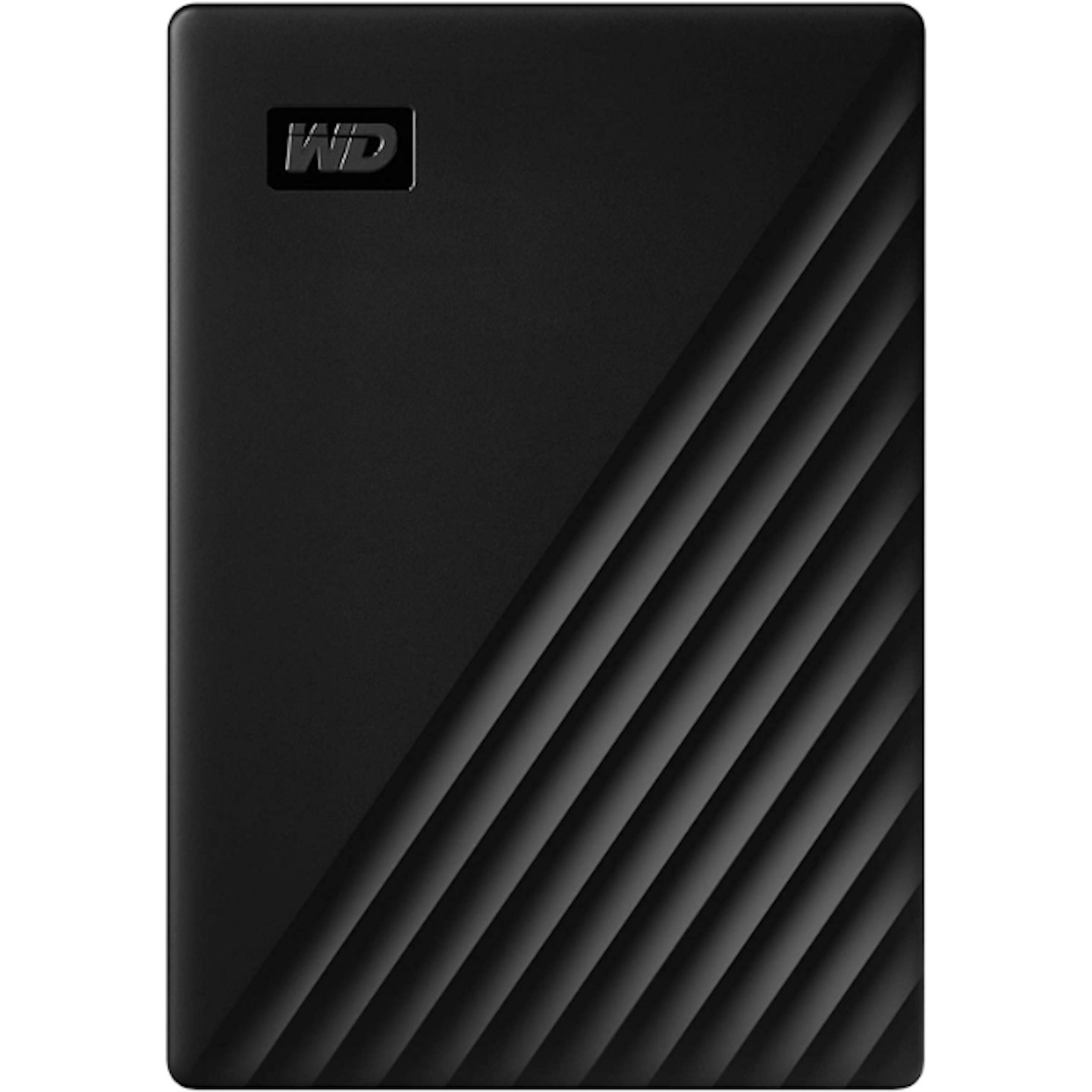
The HDD version of the My Passport portable drive is still popular to this day, and for a reason - it's affordable, reliable and big on memory. It connects via a USB 3.0 connection, so read/write speeds are good enough for most situations. WD's software (optional) is a breeze to use for newcomers and has the option to set up an access password to protect sensitive documents from prying eyes. Likewise, encryption is here and is the industry-standard 256-bit AES. The drive can be formatted to work across Mac, PC, PlayStation 4 and Xbox One.
| Pros | Cons |
|---|---|
| • Vast storage capacity | • Uses older tech |
| • Affordable | • Slower read/write than SSDs |
| • Reliable |
| Specifications | |
|---|---|
| Connection: | USB 3.0 |
| Works with: | Windows, macOS, PS4 and Xbox One |
| Read speed: | 130 MB/s |
| Size: | 107.2 x 75 x 11.15 mm, 244g |
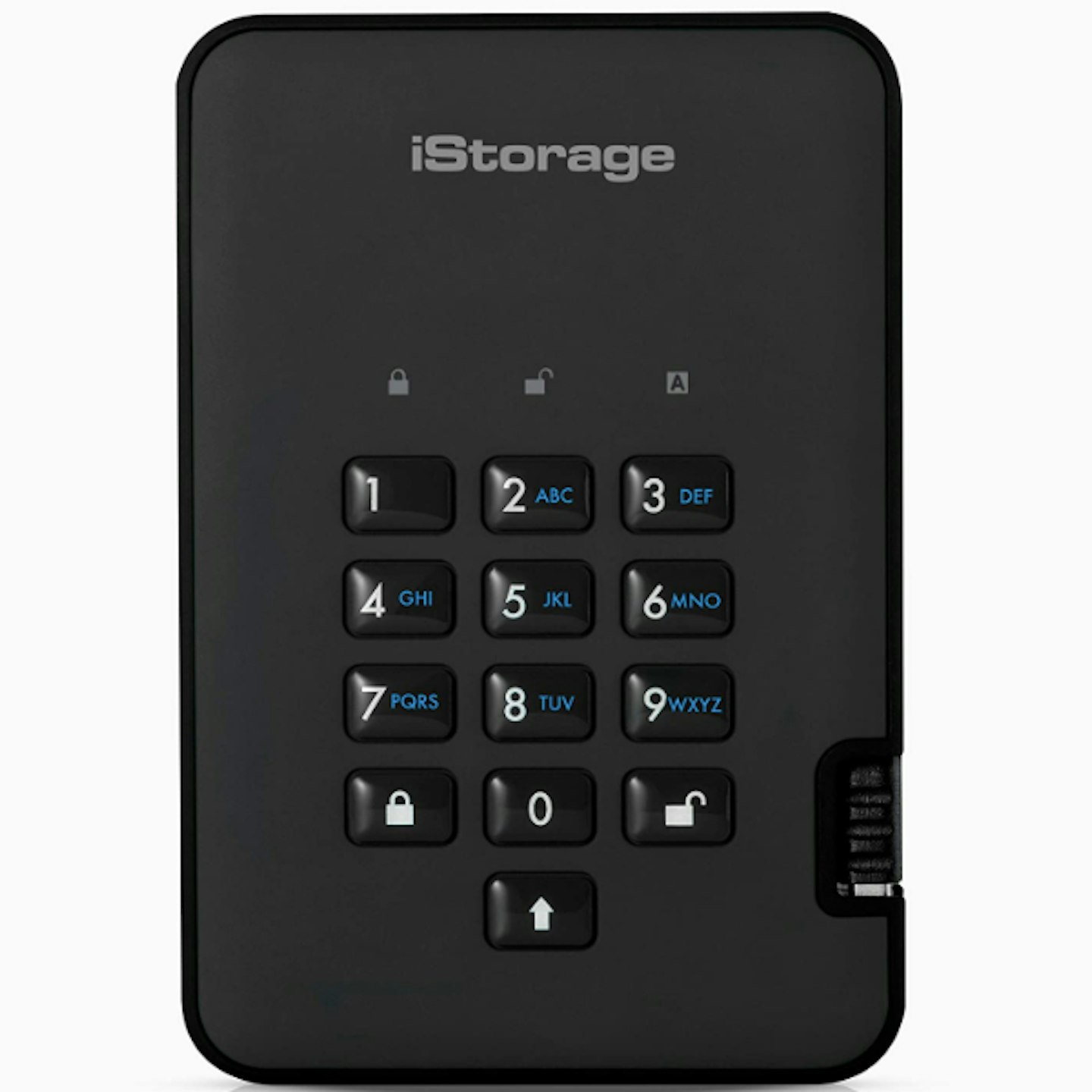
If security is your top priority, then the iStorage Encrypted Hard Drive is for you. In addition to the built-in 256-bit AES hardware encryption, the drive requires the user to enter a unique seven to 15 digit pin before data can be accessed. The diskAshur2 also auto-locks the drive once a connection is removed (this can also be set to trigger after a specified period) and can even be set to run a self-destruct feature via a specific pin. Once entered, this pin instantly deletes the "encryption key, all PINs, data and then creates a new encryption key". The encryption found here is to a military standard u2013 if your work sees you handling sensitive files, or you just want to keep your private documents safe in the case of theft or loss, then you can't really get any safer than his product.
The model we've chosen here uses USB 3.1 and has a capacity of 1TB. For those in need of higher speeds, the same encryption can be found in an SSD variant. Large memory sizes are also available.
Though this sounds very high-tech, and in some ways it is, the iStorage drive doesn't require any software downloads and works across all major operating systems, including Linux and Android.
| Pros | Cons |
|---|---|
| • Extreme security | • You don’t want to forget the passkey |
| • Protects sensitive information | • Expensive |
| • Reliable | • So-so read/write |
| Specifications | |
|---|---|
| Connection: | USB 3.0 |
| Works with: | Windows, macOS, Linux, Android, Chrome, Thin Clients, Zero Clients, Embedded Systems, Citrix and VMware |
| Read speed: | 148 MB/s |
| Size: | 124 x 84 x 27 mm, 325g |
What is the difference between HDD and SSD memory?
Hard drive disks (HDD) are mechanical, writing, and reading information on spinning disks (or platters) via an actuator arm, which moves across the platter. The platters are broken down into a series of tracks and sectors. It's within these that data is stored and addressed with a location.
Solid State Drives (SSD) write and read using flash memory, much like USB flash drives. Data is stored in grids and blocks, and though the process is more complicated than in HDD, the available space is utilised more efficiently thanks to a series of processes that go on behind the scenes.
HDD is reliable, though they are large and rely on mechanical procedures to store, write and read memory. SSD is a newer technology and uses no moving parts: it's far quicker at data retrieval, is smaller in size, and runs more efficiently. SSDs are popular within the gaming community due to their rapid load times. HDDs are cheaper and are available with much larger storage capacities.
What is AES-256 encryption?
AES-256 stands for ‘Advanced Encryption Standard – 256 bits’. There’s plenty of mathematics going on behind the scenes, but what this means in simple terms is that stored data is scrambled and unreadable. Using a secret cipher, it's unpacked and decoded, but for anyone trying to intercept or hack the data, they would see nothing but a mess of digits. Without the secret cipher key, an AES-256 encrypted message will have "1.1 x 10 to the power of 77" possible combinations, which is beyond the decryption software in the USA’s National Security Agency (or at least that’s what they tell us).
What’s the difference between USB 3.0, USB 3.1 and USB-C?
USB 3.0 and USB 3.1 connections are the common, box-like connections. These connections will work with any USB port that is this shape, though the speed at which the connections read and write data work will vary. USB ports with a blue connection inside are 3.0 or 3.1 connections, and they will offer the quickest speeds, roughly double that of the black USB ports.
USB-C is a newer version of the USB connection. It's slim and oval and has much higher read/write speeds than the USB 3.0 and 3.1.
Not all computers have this new USB-C connection port, so some external hard drives come with adapters, allowing USB cable to be plugged into the box-like standard USB ports. When this happens, the speeds are limited to the speeds of the port. A USB-C cable plugged into a standard USB port with an adapter will not read/write to the same speeds as a USB-C connection plugged into a USB-C port.
William Lobley is a Senior Content Writer and reviewer for WhatsTheBest, specialising in technology, gaming and outdoors. He also writes for Empire Online.
Subscribe to the What’s The Best Newsletter to keep up to date with more of the latest reviews and recommendations from the What’s The Best team.
